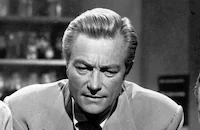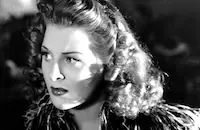Black Beauty

Brief Synopsis
Cast & Crew
Max Nosseck
Mona Freeman
Richard Denning
Evelyn Ankers
Charles Evans
J. M. Kerrigan
Film Details
Technical Specs

Synopsis
In rural England of the 1880's, widower Squire Wendon is rearing his young daughter Anne. Her father has forbidden her to be present when their mare, "Duchess," gives birth. Anne sneaks out to the stable, however, and is discovered by her father who forbids her ever to ride Duchess again. Despite this punishment, he gives Anne Duchess's colt because it is her birthday, and she names him "Black Beauty." As the colt grows, so does their mutual affection. Bill Dixon, a young American visiting the nearby Carrington family, admires the horse and is invited to tea but has to decline as he is returning to America that very afternoon. Two years later, at a birthday party for both Anne and Black Beauty, Anne receives a locket from Bill indicating that he will be returning soon. After Joe, the young stable hand, gives Anne a present of a bridle, she goes for her first ride on Black Beauty who turns out to be a very good jumper. Anne's father is pleased that she has learned patience, self control and discipline in becoming a horsewoman but would now like her to attend a boarding school to acquire some social polish as a young woman.
After having graduated from Yale, Bill returns to England but still regards Anne as a child and keeps company with the older Evelyn Carrington. One day, the squire invites Bill to go riding with them and, to accentuate her blossoming femininity, Anne decides to ride side-saddle and wear a riding habit. To Anne's dismay, Bill brings Evelyn with him, but her horse has gone lame and Anne, declining to join them, lends her Black Beauty. Anne later changes her mind and, riding a particularly rambunctious mare, is thrown and knocked unconscious. Bill then rides Black Beauty to summon the local doctor who returns on the same fast horse. Meanwhile, Anne has been taken home. Arriving there, the doctor tells young Joe that Black Beauty is very tired, needs cooling off and linament rubbed on his skinned legs. Although Joe tries to stop him, the horse drinks cold water, something he should not do when overheated. Anne recovers quickly, but discovers that Black Beauty is sick as a result of Joe having walked him around without a blanket against the cold night air. The horse recovers but Joe leaves the Squire's employment, blaming himself for Black Beauty's illness.
Bill and Evelyn visit, arousing the jealousy of Anne, who decides that she should now go away to boarding school. John, the groom, agrees to care for her horse while she is away. Later, the local veterinarian finds that Black Beauty's leg is seriously infected and that the spreading infection is so severe that the horse must be destroyed. After the squire asks John to shoot Black Beauty, a shot is heard but John has deliberately missed and takes the horse into hiding. When Anne returns from school, the squire asks John to tell her the bad news, but instead he tells her the good news. However, when Anne and John go to reclaim Black Beauty, they discover that the person who was caring for him has given him to a horse auctioneer. Anne and John, with the now romantically involved Bill following them, learn that Black Beauty has been sold to a baker as a cart horse. After they visit one business, the baker mentions to his assistant that his visitors had been looking for a black horse with a white star on its forehead. The assistant turns out to be Joe who runs after Anne and John to tell them that the horse is stabled nearby. As Anne and Bill search for the horse, Black Beauty's driver is whipping him when another driver intervenes. When a fight ensues, the stable catches fire, and Anne arrives and attempts to save Black Beauty from the inferno. Bill reaches the stable just in time to save them both. Later, after Anne and Bill are married, Black Beauty fathers a son.

Director
Max Nosseck
Cast

Mona Freeman

Richard Denning

Evelyn Ankers
Charles Evans

J. M. Kerrigan
Moyna Macgill

Terry Kilburn
Thomas P. Dillon
Arthur Space
John Burton
Olaf Hytten
Leyland Hodgson
Clifford Brooke
Highland Dale
Crew
Edward L. Alperson
Clifford Brooke
John Carter
Martin Cole
Louis Germonprez
Lillie Hayward
Roy Hunt
Agnes Christine Johnston
Virginia Lively
Arthur Lonergan
Ralph Mccutcheon
Glenn P. Thompson
Dimitri Tiomkin
Herman E. Webber

Film Details
Technical Specs

Articles
Black Beauty (1946)
The novel, told from the horse's point of view, saw him pass through many hands, but the producers decided to focus on only one owner, the English girl, possibly to capitalize on National Velvet. The film, the fourth film adaptation of Black Beauty, was far from a lush Technicolor MGM production. This was a decidedly low-budget affair. Lacking any top stars, Black Beauty was shot in little over a month, from November 11 - December 22, 1945, at the PRC Studios (Producers Releasing Corporation), one of the Poverty Row studios in Hollywood. Alson Productions, Inc. was the producing company and Twentieth Century-Fox acted as distributor.
Along with Freeman and Denning, the cast included Angela Lansbury's real-life mother, Moyna MacGill, J. M. Kerrigan and Evelyn Ankers as Freeman's romantic rival for Denning. Lillie Hayward and Agnes Christine Johnston adapted Sewell's book for the screen and Max Nosseck directed. Beauty was played by Fury, who at the time was the second-highest paid animal in Hollywood (Lassie being the first). Sewell wrote the book in the last year of her life in order to raise awareness of the treatment of horses and the film's producers carefully noted that the movie was supervised by the Humane Society.
The film opened August 29, 1946 and went into general release the following month. Bosley Crowther of The New York Times pegged the film as appealing mainly to "the pre-teenage set". He added, "The small fry were present in goodly number at the Victoria Theatre yesterday for the opening of Black Beauty and the chances are they had a much more rewarding hour than the rest of us. The very young members of the audience signified their delight with occasional excited squeals, as when the stable goes up in flames and Black Beauty, tired and haggard after a long day of wagon pulling, appears content to let the flames end his misery. The producers admit in a foreword that the picture is a "free" adaptation of Anna Sewell's minor classic, but assert that they have preserved the spirit of the book. Well, it is one thing to turn a camera on a handsome, glossy horse and get the animal to prance about and to display affection toward its loving mistress. Horses are wonderful actors, and the one in this picture is no slouch. But it takes something more than just a friendly spirit to keep a picture going, and the things which happen to Black Beauty, from his foaling to his desperate plight as a workhorse, are all too reminiscent of the recent Smoky [1946]."
by Lorraine LoBianco
SOURCES:
Crowther, Bosley The New York Times 30 Aug 46
The Internet Movie Database
The American Film Institute Catalog of Motion Pictures .Volume 1, Part 1

Black Beauty (1946)
Quotes
Trivia
Notes
The film's opening credits acknowledge the cooperation and approval of the American Humane Association in the production of the picture. Another title states, "This presentation of Anna Sewell's immortal classic has been freely adapted for the screen-carefully preserving the beautiful spirit of this most beloved of all horse stories." Mona Freeman and Richard Denning were loaned to the production by Paramount. Alson Productions was owned by Edward L. Alperson.
There have been many screen adaptations of Anna Sewell's novel. Among them are a 1917 Edison three-reel picture entitled Your Obedient Servant, with Peggy Adams and Pat O'Malley, directed by Edward H. Griffith; a 1921 Vitagraph film directed by David Smith, with Jean Paige, James Morrison and George Webb, (see AFI Catalog of Feature Films, 1921-30; F2.0432); a 1933 Monogram version directed by Phil Rosen that starred Esther Ralston and Alexander Kirkland (see AFI Catalog of Feature Films, 1931-40; F3.0356); a 1971 German-Spanish-British co-production directed by James Hill, starring Mark Lester; a 1972 British television series entitled The Adventures of Black Beauty; a 1978 NBC-TV mini-series; and, a 1994 Warner Bros. release directed and written by Caroline Thompson.















